Doncaster Rovers’ stunning rise from the lowest of lows: Revisiting The Catt Chronicles - pt4
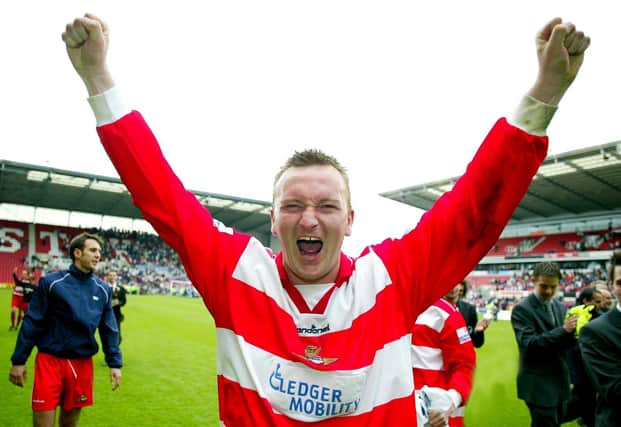

Each piece covered a ten year period in Rovers’ history, with Catt reflecting on the big events and recollecting the managers and top players of the time.
Here, we continue our revisit of the series, as we look at part four which covers 1996/97 to 2005/06.
*************
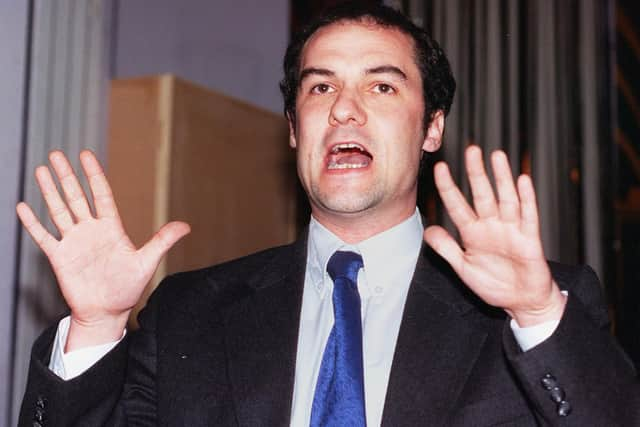

Advertisement
Hide AdAdvertisement
Hide AdThe fourth decade was easily one of the most extraordinary in the club’s history.
It was a period in which they plumbed the depths and lost their league status before literally rising from the ashes to enjoy seven consecutive seasons where they finished higher than the one before.
It saw the end of the hated Ken Richardson regime and the start of the John Ryan dare to dream era which eventually carried Rovers from the Conference to the Championship with appearances at the Millennium Stadium and Wembley along the way.
MANAGERS
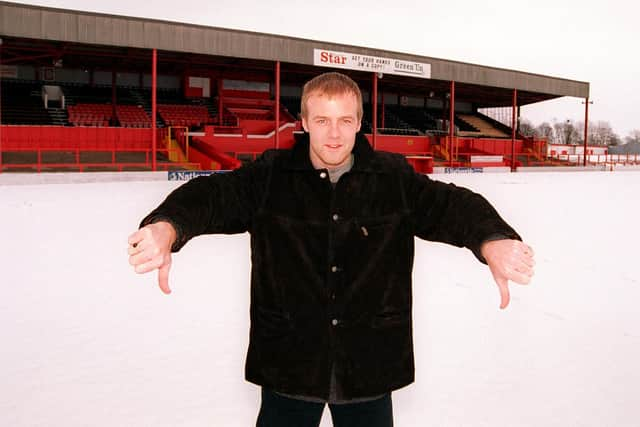

At the start of the decade Rovers were on their way down and finished 19th in Kerry Dixon’s first season in charge.
Advertisement
Hide AdAdvertisement
Hide AdKerry had signed a contract two hours before the opening match at home to Carlisle in August 1996 and was introduced to the players an hour before kick-off.
Previous boss Sammy Chung and his assistant George Foster had turned up to take charge of the game only to be told their services were no longer required!
In the circumstances the bewildered players did well to only lose by the odd goal.
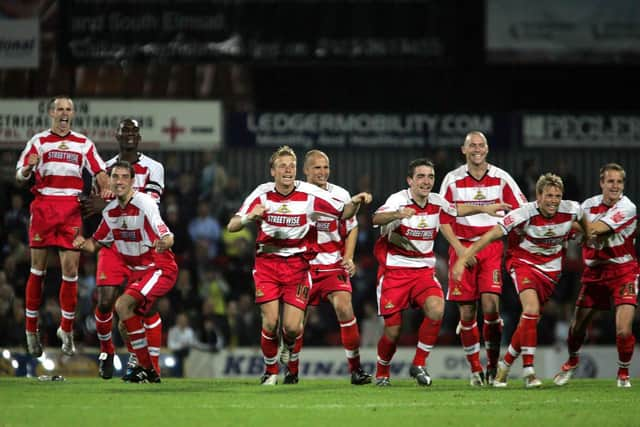

By then self-styled benefactor Ken Richardson was starting to lose interest in the club and had more pressing matters on his mind - although it did not stop him interfering in team selection.
Advertisement
Hide AdAdvertisement
Hide AdHe was out on bail having been arrested and charged with conspiracy to commit arson at Belle Vue, and in December that season he lost his appeal over the Flockton Grey case which had led to him being given a suspended prison sentence and banned from horse racing following a betting scandal some ten years earlier.
Mark Weaver, who was to become almost as despised by fans as Richardson, had arrived during the summer that year as general manager.
He had no previous experience in the role but was there ostensibly to do Richardson’s bidding - and eventually ended up as team boss!
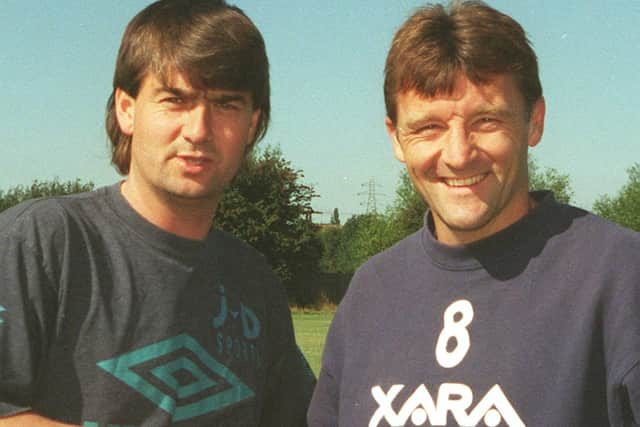

Whatever intentions Richardson had initially the entire enterprise had turned into a farce and the running of the club was a complete shambles.
Advertisement
Hide AdAdvertisement
Hide AdAround that time an advert appeared in the Daily Telegraph offering the club for sale, Dixon had to put ten players on the transfer list and overdue debts led to a winding up order in February 1997.
The players went unpaid and a transfer embargo was imposed.
Then Dixon finally admitted at a public meeting that he was not picking the team but merely advising Richardson who wanted to run the show himself.
Average attendances plummeted below 2,000 and some gates even fell below four figures.
The club was put into administration and along came Anton Johnson as a prospective buyer.
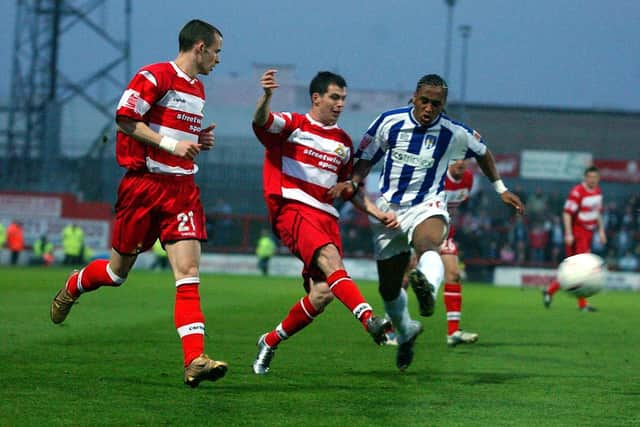

Advertisement
Hide AdAdvertisement
Hide AdThe flamboyant Johnson had attracted almost as much controversy as Richardson around a decade earlier when it was alleged he was in control of three football clubs, including Rotherham, at the same time.
Rovers fans were left wondering if it would be a case of out of the fire and into the frying pan but in the end the takeover attempt failed.
Towards the end of the season Colin Richardson, no relation, was appointed assistant manager without Dixon being informed and Kerry eventually left the club in the summer.
Around the same time Brent Peters, another short-lived coach, blew the lid off completely after leaving when he said Ken Richardson had continually overruled Dixon and wanted to select the side, decide the tactics, do the team talks and make the substitutions as well!
Advertisement
Hide AdAdvertisement
Hide AdSupporters could have been forgiven for thinking it could not get any worse - but then came the 1997/98 season.
At the start of that ill-fated season - the worst in modern times - they went 20 games without a win before finally beating Chester 2-1 at home in front of just 864 spectators in December.
For some reason I missed the 5-1 defeat at Darlington in October but after the game I got a call from Richardson who had not been in touch for a while.
He said: "I’m having nowt to do with it anymore and I’m not putting any more money in because the players have let me down. I’m not even going to help out by picking the team."
Advertisement
Hide AdAdvertisement
Hide AdDave Cowling, who was helping out with youth coaching, agreed to take the manager’s job on the understanding he would have a free hand in selecting the side.
Just ten days later the principled Cowling immediately packed in after being handed a piece of paper containing a team to play in the next game.
Then Danny Bergara arrived, supposedly in charge, just at the time the fans were becoming more vocal in their protests at Richardson’s reign.
Danny came in for plenty of flak himself as the defeats continued and it was not long before he declared he was not going to attend home games because of the abuse he was getting.
Advertisement
Hide AdAdvertisement
Hide AdIt was decided he could hardly continue as team boss if he did not watch them play so Weaver took over as manager’ with Bergara concentrating on coaching.
By then the fans had had enough and an unprecedented season of utter misery ended with pitch protests, anger and tears as Rovers crashed out of the league 15 points adrift at the bottom of the table.
They had managed just four wins, scored 30 goals while conceding 113 and lost 34 games - a Football League record.
At the same time the youth policy that had produced so many promising youngsters was discontinued and that had ramifications for years to come.
Advertisement
Hide AdAdvertisement
Hide AdRovers had lost the trust of the local community, parents would not let their sons sign for the club and it is only now that we are seeing talented youngsters coming through again.
The rock bottom season was made even more poignant for me when Billy Bremner came to the Hartlepool home game in October to do some work for local radio.
He was shocked to see the fans looking so sad and miserable and asked me what was happening.
I tried to explain but he could not understand how Richardson had been allowed to interfere in team affairs and run the club down.
Advertisement
Hide AdAdvertisement
Hide AdThe dressing room was sacrosanct in Bremner’s day and he would never have tolerated Richardson even knocking on the door.
Billy brought us some luck that day as Rovers managed a 2-2 draw and just before he left he called me over, wished me luck and said I’d give anything to put a smile on the fans’ faces again’.
They were to be the last words he spoke to me.
Less than two months later he tragically died at the age of 54 following a massive heart attack.
At his funeral I met up with several of the players who would have run through a brick wall for him and the club, and it just underlined to me what a rag, tag and bobtail outfit Rovers had become.
It wasn’t even a pub team having a laugh.
Advertisement
Hide AdAdvertisement
Hide AdThere was a key game at home to Brighton that season where Weaver infamously decided to sign on one of his neighbours, a Stockport Sunday league player, and put him in goal.
It was to be the hapless David Smith’s one and only league appearance and Rovers did well to only lose the match 3-1 to the second from bottom club.
Mercifully Richardson finally managed to find a buyer for the club when he sold out to the Westferry company in the summer of 1998 - but even then the deal was mired in controversy.
Aidan Phelan claimed to be the sole owner of Westferry when I asked him at the press conference to announce the deal whether there was anyone else behind him.
Advertisement
Hide AdAdvertisement
Hide AdIt later turned out that it was being funded by Irish telecoms billionaire Denis O’Brien and it was even alleged at the lengthy Moriarty tribunal in Ireland that government minister Michael Lowry was also involved.
In any event whoever was controlling Westferry they made no bones about the fact that they were only interested in selling off Belle Vue for redevelopment and, to the relief of the fans, they eventually agreed to sell off the football side to John Ryan and Peter Wetzel.
Ian Snodin was appointed manager with brother Glynn later arriving as his assistant and at last the club was back in safe hands.
The only trouble was they were starting out in the Conference at absolute rock bottom.
Advertisement
Hide AdAdvertisement
Hide AdThere was less than a fortnight to go before the start of the season when Ian was officially appointed. He had only five players on the books, no kit, no footballs, no equipment, no staff.
Snodin worked his socks off to assemble a team in time for the first match at Dover, was continually on the phone to friends in the game to try and call in favours and even borrowed a book from me that listed pen pictures and stats on players.
Amazingly he managed to sign some decent players for that first match including Simon Shaw, Kevin McIntyre, Colin Sutherland, Tommy Wright and Shaun Goodwin.
But miracles do not happen overnight and it took some time to get a full squad together and for the players to adjust to Conference football.
Advertisement
Hide AdAdvertisement
Hide AdSnodin also played the occasional game himself and brought in superstars like Nev Southall, John Sheridan and Steve Nicol for cameo appearances when they were between clubs and in the twilight of their careers.
Their thinking time was light years ahead of most of the other players on the pitch and for me it was a joy to watch them knocking the ball around after being served up a diet of dross under Richardson, who was finally jailed for four years in March 1999 for his part in the arson plot.
But they still found it hard to win games and they finished 16th that season although the final match was one of the most enjoyable I witnessed in 50 years reporting on the club.
The occasion was the second leg of the Endsleigh Trophy Final - the Conference League Cup - at home to Farnborough Town.
Advertisement
Hide AdAdvertisement
Hide AdIt was not the most prestigious of competitions but 7,160 fans turned out to watch the game - Belle Vue’s biggest gate since the Snodin brothers had starred themselves in the epic FA Cup win over QPR 14 years previously.
I remember describing it as the night football came home to Doncaster after all the years of hurt under Richardson and it was as if the whole town was rejoicing at his departure.
Rovers had won the first leg 1-0 and I can still see Ian Snodin punching the air in triumph at the final whistle after they had clinched a 3-0 victory in the Belle Vue match.
Ever the showman John Ryan had arranged for fireworks to accompany the trophy presentation and it was a wonderful, emotional and happy occasion.
Advertisement
Hide AdAdvertisement
Hide AdThe smiles were back on the faces of the fans - just as Billy Bremner had hoped for some 18 months earlier.
Rovers improved to 12th place the following year despite being plagued by injury problems but it was not happening quickly enough for the ambitious John Ryan and the Snodins lost their jobs towards the end of that season.
It happened after a 1-0 defeat at third placed Morecambe in April.
Glynn offered to give me a lift home after we got back from the game but said he had to call in at the ICI club on the way for a junior team trophy presentation.
Advertisement
Hide AdAdvertisement
Hide AdHe claimed he would not be long and told me to have a quick drink while I was waiting.
Almost half a dozen pints later, drunk by me not him, and he was still on the stage handing out the trophies!
Then he spent a good half hour afterwards signing autographs for everyone.
It was to be his last act as Rovers assistant boss with the sack coming on the Monday morning.
Advertisement
Hide AdAdvertisement
Hide AdHe had been desperately disappointed by the defeat that afternoon but it made no difference as he took his time chatting cheerily to the youngsters and making their night.
Ian wore his hear on his sleeve and the brothers would have done anything to make the club successful.
You could not have found two people more desperate to do well and proud to represent the club.
They had brought credibility and respectability back to Rovers and it was a shame they could not be the ones to lead them back into the league.
Advertisement
Hide AdAdvertisement
Hide AdTheir successor was another ex-player Steve Wignall but the Conference was proving a tough nut to crack and he could only bring about a slight improvement with Rovers finishing 9th in his first season in charge despite having money to spend on team strengthening.
Crowds began to plummet below 2,000 again and Wignall left in in December 2001 following an inauspicious spell in charge.
The fans were in need of a lift, especially following the sad death of Belle Vue idol Alick Jeffrey a year earlier.
John Ryan had made him club president after taking the reins and it was great to see Alick properly honoured at last and travelling at the front of the team coach to away matches reading his large hardback copy of Frank Sinatra’s biography.
Advertisement
Hide AdAdvertisement
Hide AdRyan’s dream of leading Rovers back into the league and on to greater glories was in danger of not becoming a reality but then Dave Penney took over from Wignall and enjoyed a tremendously successful five-year spell at the helm.
Penney made some astute signings, not least James Coppinger midway through his reign, and introduced a brand of high tempo, high pressing fast-paced soccer.
But they still needed a stroke of luck before reclaiming their place in the league after five years in the wilderness.
Rovers finished fourth at the end of the season in which Penney had taken over and third the following year.
Advertisement
Hide AdAdvertisement
Hide AdBut by then a play-off system had been introduced to give the Conference a second promotion place.
Fortune favoured Rovers in the two leg semi-final when they beat Chester on penalties and then clinched a 3-2 victory over Dagenham and Redbridge at the Britannia Stadium with a famous golden goal from Francis Tierney.
Rovers were back where they belonged and they wasted no time in making their presence felt when they sailed through the Third Division as champions - four points ahead of Hull City - and straight into League One.
They maintained the momentum finishing 10th in 2004/5 and just missed out on a promotion play-off place by a couple of points to Swansea the following season, in which they also enjoyed a phenomenal League Cup run.
PLAYERS
Advertisement
Hide AdAdvertisement
Hide AdIn fairness during Richardson’s time some very good players came to the club and he cashed in with giant centre half Darren Moore sold to Bradford City for £310,000 and 21-goal top scorer Colin Cramb to Bristol City for £125,000.
Apart from the players previously mentioned Ian Snodin brought in Mark Atkins, Dave Penney, Andy Warrington and Simon Marples as well as a young Paul Green, who was to make an impact in subsequent years.
Two of the most prolific strikers in non-league football Carl Alford and Justin Jackson were signed by Wignall but they failed to do the business at Belle Vue.
Penney was much more successful at bringing in goalscorers who lived up to their reputations with Paul Barnes notching 28 goals the season they won promotion from the Conference.
Advertisement
Hide AdAdvertisement
Hide AdGregg Blundell scored 20 when they clinched the Third Division title the following year and he also signed Paul Heffernan who hit some key goals for the club.
Among Penney’s other signings were midfield stars John Doolan and Sean Thornton and the mercurial Michael McIndoe.
There was another player who hit the headlines when he made his one and only appearance for the club in the final Conference league match during the 2002/3 promotion season.
John Ryan fulfilled a long held ambition when he came on as substitute for the last three minutes at Hereford with victory already assured.
Advertisement
Hide AdAdvertisement
Hide AdHe never actually touched the ball but, at the age of 52, he still goes down as the oldest player to make a first team appearance for the club.
MATCHES
It was a case of the agony and the ecstasy during this decade.
Rovers went down 8-0 at Leyton Orient and 7-1 at Cardiff in the disgraceful 1997/98 season as well as well as losing 8-0 at home to Nottingham Forest in the first leg of the Coca Cola Cup.
Under Snodin there was an incredible game against Dover when we came back from 3-0 down to win 5-4 as well as clinching a 1-0 win at Southend in the FA Cup.
Advertisement
Hide AdAdvertisement
Hide AdBut, apart from the previously mentioned Endsleigh Trophy Final, the most memorable games came right at the end of the decade with the extraordinary League Cup run under Dave Penney in 2005/6.
They beat Manchester City on penalties in the second round with Jan Budtz coming on in goal to save two spotkicks on his debut after Andy Warrington had broken his leg.
In round four Rovers clinched a spectacular 3-0 win over Aston Villa with a brilliant display which had David O’Leary in denial afterwards.
The Villa boss reckoned his team had played quite well and it was just one of those nights. But we completely outplayed them to the delight of more than 10,000 fans at Belle Vue.
Advertisement
Hide AdAdvertisement
Hide AdIt set up a quarter final tie with Arsenal in which Rovers again distinguished themselves in a game which went to extra time.
They snatched the lead twice and looked set for an historic first appearance in the last four before World Cup winner Gilberto grabbed an equaliser with seconds to spare to take it to penalties.
This time they could not repeat their spotkick heroics and Arsenal won the shootout 3-1 although it was Rovers who earned the plaudits of fans nationwide for their giantkilling exploits.
READ MORE
Comment Guidelines
National World encourages reader discussion on our stories. User feedback, insights and back-and-forth exchanges add a rich layer of context to reporting. Please review our Community Guidelines before commenting.